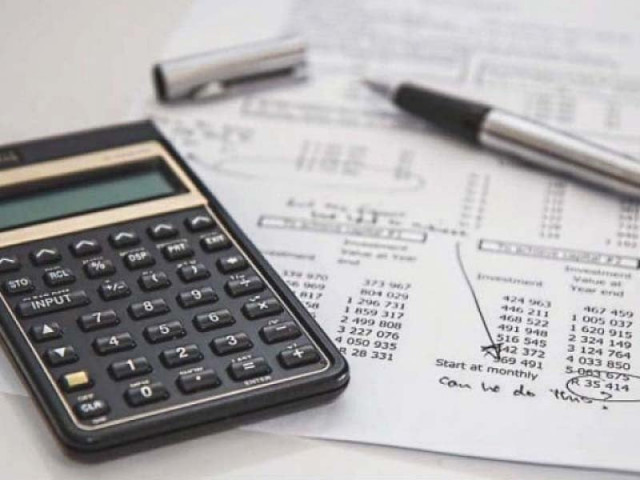Govt may raise tax on banks
Also mulling increasing additional tax on profits from lending to govt

The government may increase the super tax on commercial banks to 7% and also further enhance the additional tax on profits that banks make by extending loans to the cash-starved central government.
If both proposals pass the scrutiny and are subsequently approved by the National Assembly, the effective increase in the additional tax burden on commercial banks could be 7% to 8% in fiscal year 2022-23, according to government sources.
The federal government has prepared a budget proposal to increase the super tax on commercial banks from 4% to 7%, according to a senior government official.
The increase in the tax rate can help to generate Rs8 billion to Rs10 billion more every year from banks on account of super tax.
At present, banks are charged 35% income tax, 4% super tax and 2.5% to 5% additional tax on the additional investment in government debt. This brings the effective tax rate for banks to nearly 43%.
Sources said that subject to the clearance of both the proposals, the tax rate for banks could jump to half of their income.
Super tax had been introduced in 2015 for only one year to raise funds from all the companies and individuals having annual income of more than Rs500 million to help in the war against terrorism.
The individual super tax was withdrawn in 2020. However, the legal provision for reviving the individual super tax still exists in the law where the rate is 0%. The government only needs to change the rate to again slap the super tax on the wealthy people.
After a complete ban on government borrowing from the central bank, the bankers have been earning a windfall and have also indulged in exploitation of the federal government. There is strong resentment in the Q-block – the seat of finance ministry – against the exploitation.
It seems that the government has decided to force banks to behave responsibly through the fiscal policy tool, as it remains completely at the mercy of the bankers after the door to borrow from the central bank has been permanently shut due to the IMF’s condition under its loan programme.
Sources said that Prime Minister Shehbaz Sharif also wanted to collect more taxes from banks in the next fiscal year and directed the Federal Board of Revenue (FBR) to draw up proposals.
Banks made huge profits during January-March of the current year. According to the results of 20 banks listed at the stock market, they earned Rs80.7 billion in after-tax profit, higher by one-fifth over the preceding quarter.
According to a Topline Securities’ report, the higher banking sector profit was the result of increasing interest rates charged on bank loans to the private sector, higher yields earned on government loans and a decline in the provisioning expense.
Sources said that the additional tax on those banks whose advance-to-deposit ratio stood below 40% could be increased to 10% aimed at encouraging them to give more loans to the private sector.
At present, the government charges 2.5% additional tax if the banks’ advance-to-deposit ratio falls between 40% and 50% of total deposits. If the ratio falls below 40%, then the additional tax is 5%.
These rates could be doubled in the budget, subject to the endorsement by the political leadership.
The ratio shows how much a bank has lent against its deposits. However, the banks in Pakistan have been making easy money by investing funds in government securities.
The previous government gave an undue advantage to banks through tinkering with the Seventh Schedule of the Income Tax Ordinance that deals with the banking sector taxation.
The government slapped the additional tax of 2.5% to 5% on the amount that is below the threshold.
Under the 2020 law, the total additional income from investment in government securities was taxable at an additional 2.5% rate. An amendment had been made in Clause 6A and 6C of the Seventh Schedule of the Income Tax Ordinance for the purpose.
Now, the taxable income attributable to investment in the federal government securities is taxed at the rate of 40%, if the assets-to-deposit ratio as on the last day of the tax year is up to 40%.
In order to avoid taxes, the banks reduce their exposure in government securities before the due date of calculation – a door that now needs to be shut to collect due taxes from banks.
Published in The Express Tribune, June 7th, 2022.
Like Business on Facebook, follow @TribuneBiz on Twitter to stay informed and join in the conversation.



















COMMENTS
Comments are moderated and generally will be posted if they are on-topic and not abusive.
For more information, please see our Comments FAQ